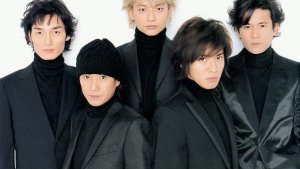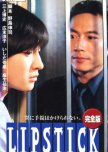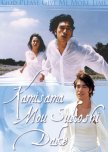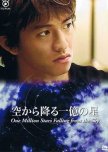 A look at SMAP dramas throughout the Years
A look at SMAP dramas throughout the Years - Română
- English
- magyar / magyar nyelv
- dansk
- Titlu Nativ: 砂の器
- De asemenea cunoscut ca și: Vessel of Sand ,
- Regizor: Yamamuro Daisuke, Kaneko Fuminori, Fukuzawa Katsuo
- Scenarist: Tatsui Yukari
- Genuri: Muzică, Thriller, Mister, Dramă
Cast și credite
- Matsuyuki Yasuko Rol Principal
- Nakai Masahiro Rol Principal
- Watanabe Ken Rol Principal
- Takeda ShinjiSekikawa YusukeRolul de Sprijin
- Ichimura MasachikaYuzuru AsoRolul de Sprijin
- Akai HidekazuMiki KenichiRolul de Sprijin
Recenzie

Suna no Utsuwa (Vessel of Sand) spins a tale of unavoidable fate, embodying this sort of transient beauty with dark resonance. We follow pianist Waga Eiryo, a secretive man running from his past…and the cruel destiny he believes might also shape his future. Just when it appears he has shed both, a face from his troubled childhood resurfaces to torment him once again. One moment lost to passion and a sharp shove is all it takes—in rush the waves ready to destroy his new life. So begins our tale of murder and mystery, tragedy and deception, of happiness which crumbles like so much sand.
This series will haunt me for a long time to come. Understated as it is, Suna no Utsuwa nonetheless delivers an elegant atmosphere with serious impact. Each of its elements folds together with an artistic flourish that must be marveled at. In all my experience with Asian television, no other example has so impressed me with its visual beauty—what stunning cinematography and evocative scene composition! Time has not diminished one bit of the vibrant aesthetic. All one could further wish for are stirring themes, unique plots, and powerful performances; here one receives all three and more besides.
Our mystery is unveiled via a masterful combination of fragile character interactions and clever police investigation. Do not expect any resemblance to your regular detective drama. As powerfully constructed as the puzzle is, this is not a crime series but a character study. No guessing remains to be done; viewers are meant to witness the desperate battle of a man against fate. Who is Waga Eiryo and why? I loved how the two story aspects were tied together, often serving to create parallels between pianist and detective. One example may be seen in the counterpoint between interrogation sessions and those featuring musical composition/performance sequences. Please also note the tremendous ending undertaken over two episodes. The result left me trembling with so much emotion it was difficult to properly compile this review.
An idol was asked to play Waga Eiryo: SMAP’s Nakai Masahiro. Could anyone have better portrayed this extremely complex figure? Not on your life. Nakai-san’s excellence begins with the eyes; his are large and dark with suspicion, the sort which might remind one of a hunted animal. For the most part Waga sinks beneath an icy facade, a disdainful and haughty mask. But as Suna no Utsuwa continues, this mask chips away piece by piece. We are made confidants of his vulnerability and fear, tenderness and anguish. Undoubtedly the role of a lifetime, Nakai strikes every chord without stumbling. Next is incomparable Ken Watanabe, an utter gift to the small screen. He presents Imanishi with gentle normalcy, a believable brilliance stemming from hard work and consideration rather than trumped up genius. If only we could see such effortless acting in dramas more often! Let us not forget the wonderful Matsuyuki Yasuko either. Her Naruse is the clinch-pin of fate for Waga Eiryo, and few actresses could sell it as well as she did. No matter what the role, Matsuyuki-san’s passionate beauty and exquisite expressions must always be appreciated.
But above all else, music is where Suna no Utsuwa most excels. Just as it offers visual delights, this drama must be nothing if not pure auditory bliss. Not one track has been left awkward or misplaced by the passage of years. Some masterful touch seems laid on the compositions, which are so crucial in elevating scenes and construction of emotional atmosphere. Most memorable must be what is represented as Waga Eiryo’s devastating magnum opus, “Shukumei,” an embodiment of the fate he longs to escape. Also exceptional is the romantic vocal theme in “Yasashii Kisu no Shite (Kiss Me Gently)” provided by Dreams Come True. The first to catch my ear, however, is the choral piece played only at pivotal moments; if you want goose bumps, this one should do the trick.
Considerați utilă această recenzie?
Recomandări
There have been no recommendations submitted. Be the first and add one.
















































